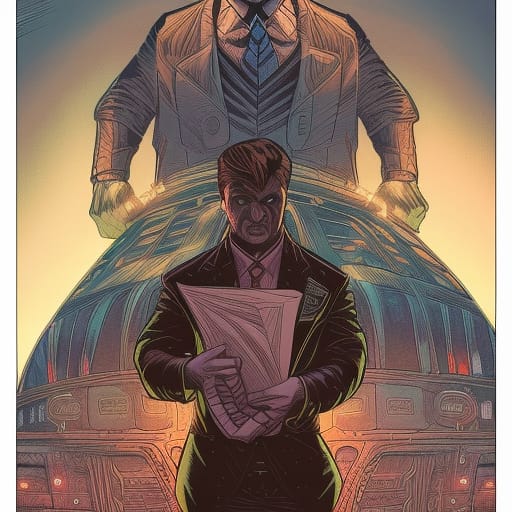What are the goals of a coaching program?

Improved interpersonal skills — coaching, influencing, motivating, communication, inspiration, conflict management, and more. Team building skills — coaching, effective delegation, performance management. Imagine that a customer is dealing with a significant conflict. A coach has the client list the problems from his point of view and the opposing party’s perspective.
The coach then works with the client to develop multiple solutions. During brainstorming, the coach asks the client what solutions he thinks the other person could suggest.. The coach then asks the customer which options work for both parties. Finally, the coach and the client decide on the action steps.
Ideally, the customer has become aware of the other party’s point of view and can suggest new solutions.. The client and coach can then discuss the specific steps of this technique so that the client is prepared to use it in their conversation with the other person.. Coaches may not be financial advisors, but the Center for Coaching Certification’s Certified Master Coach program trains participants in budgeting processes and tools. It is advisable that coaches feel informed and competent in this area, as all clients must handle money in some way, and money management is sometimes a barrier to clients’ personal or professional goals..

At the end of the session, the coach and client may also discuss resources to learn more about corporate budgeting and financial statements.. Self-reflection is an effective tool to support meaningful change.. Techniques that coaches use to encourage self-reflection include exploring a client’s values and then considering how their decisions are consistent with those values. During this conversation, a client should become aware of the contradiction between her values and realities and be empowered to make various decisions and plan appropriately..
Evaluations can focus on values, personality traits, or specific skills. A coach works with the client to understand the assessment feedback and create an action plan for working on areas of opportunity. Delegating is a skill that all managers must learn, but many struggle with. Coaches are often asked to help their clients develop this skill..
A coach can start by working with their client to create an organizational chart of the client’s team.. Together, they define the responsibilities of each employee, including the customer himself. The coach asks the client to consider how much time they dedicate to each responsibility. They then discussed what would happen if he delegated the tasks to support each responsibility..
This gives the customer an insight into which tasks they should continue to complete and which they should start delegating.. The customer and the coach then discuss to whom the individual tasks could be delegated and how this would affect the employee’s current workload.. To be more authentic in my leadership, someone who is transparent, open, and vulnerable so that every team member is empowered to express themselves. Coaching takes time to be effective, so it is essential that the coach is committed to the client’s progress over the long term..
This change is often brought about by specific techniques and tools that coaches learn during coach training and model for their clients.. Regardless of your position, industry, and particular circumstances, here are some guidelines for setting your goals for executive coaching — along with examples of the goals and the thought process that led to those goals.. Cathy Liska is founder and CEO of the Center for Coaching Certification and the Center for Coaching Solutions. Remember that when you set a vision with your executive coach, you’ll eventually have the opportunity to rally your team around a shared vision or even support a process through which the team develops a shared vision for the entire company..
Executive coaching teaches people how to properly listen to and understand disputes and conflicts and resolve situations without undue commotion. A coach starts by finding out what the manager wants and needs to achieve through the coaching commitment.. Executive coaching has many benefits that can be applied in practice in a professional environment.. A good coach must know how to ask questions without making the client feel that the coach is invading their privacy.
We enjoy helping managers and aspiring managers improve their leadership skills and achieve their professional goals. Executive coaching helps managers develop the ability to optimize their strengths and excel in their work.. Building trust and a good relationship between the coach and the client are the keys to a healthy and lasting coaching relationship. Once the coach has assessed the client, it is essential that the coach effectively expresses thoughts and suggestions and ensures that the client follows and is satisfied with the suggestions and tools offered..
As mentioned above, the purpose of an executive coach is to provide customers with the tools, knowledge and opportunities they need to reach their true potential and become more efficient.. Developing leadership skills is one of the main goals of coaching, as coaching leads managers to think open-mindedly.. A critical aspect of the goal-setting process in executive coaching is the definition of clear criteria for success.
.
References:
- What Are the Goals of Executive Coaching? – Flourish Executive Counseling & Coaching
- The Purpose Coaching
Improved interpersonal skills — coaching, influencing, motivating, communication, inspiration, conflict management, and more. Team building skills — coaching, effective delegation, performance management. Imagine that a customer is dealing with a significant conflict. A coach has the client list the problems from his point of view and the opposing party’s perspective. The coach then works with…
Business Consulting Articles
- About cookies and cookie consent
- Advisory Consulting
- Business Growth Consulting | Unlocking Your Business Potential
- Business Process Consulting Services Can Improve Your Business
- Organizational Development Consultant
- Privacy Policy
- Strategic Advisory Services Explained: A Comprehensive Guide
- Top 100 Advisory Consulting Terminology
- Top 100 AI as a Service (AIaaS) Terminology
- Top 100 Business Consulting Terminology
- Top 100 Executive Coaching Terminology
- Top 100 Operation Management Terminology
- Top Advisory Consulting Terminology
- Top AI as a Service (AIaaS) Terminology
- Top Business Consulting Terminology
- Top Executive Coaching Terminology
- Top Operation Management Terminology
- AI Generated Q&As
- Blog
- Boutique Firms
- Business advisory consulting
- Business Consulting
- Business consulting services
- Business Management
- Case studies on specific industries
- CEO
- CFO
- CIO
- Client success stories
- CMO
- Consulting
- COO
- Executive Coaching
- Expert guidance and insights
- Financial advisory consulting
- Financial Consulting
- Financial consulting services
- Fractional Executive
- Human Resource Management
- Increased efficiency and profitability
- Industry knowledge and experience
- IT Consulting
- Management Consulting
- Management Consulting
- Methodologies
- Professional qualifications and certifications
- Risk management and compliance
- Team diversity and collaboration
- Technology advisory consulting
- Technology consulting services
- Testimonials from satisfied clients
- Tier 1 Firms
- Tier 2 Firms
- What is Advisory?
- What is Consulting?
